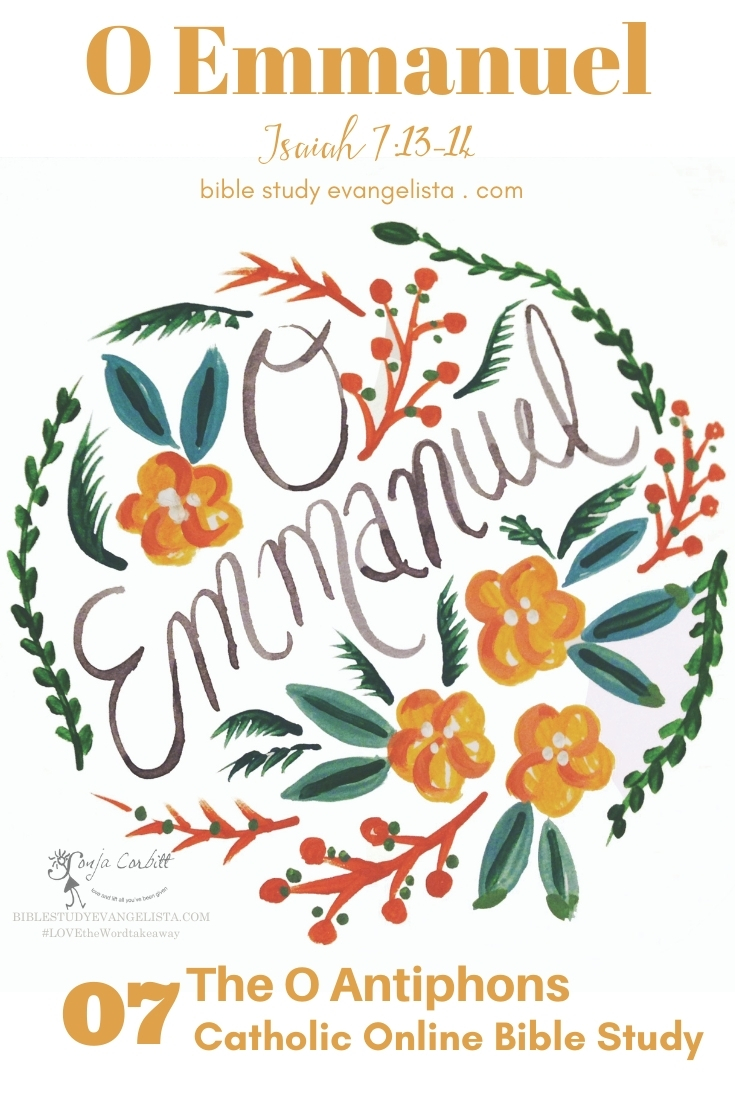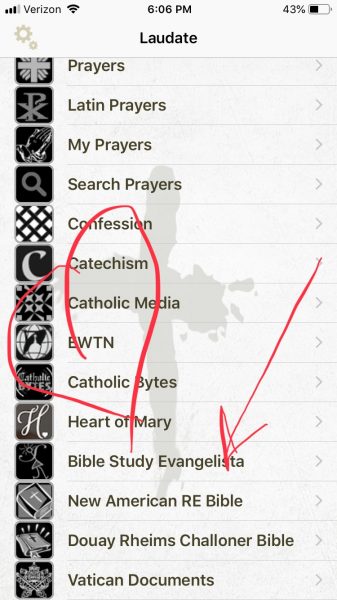The vowels necessary to pronounce the sacred Name of God, revealed to Moses in the burning bush, are found again in the Hebrew name of Jesus, Emmanuel, with the addition of the consonants from the verb “to save.”
“In this way, while the Name of God is so holy, mysterious, and pure that it cannot be pronounced by a human mouth, the addition of Christ’s divine will to save mankind “translates,” that is, transfers, the sanctity of God to our level as creatures and at last makes it possible for us, too, to pronounce God’s true Name, which cannot be any other than Jesus, and thus be saved. All else that we subsequently come to know about God rests on this primary revelation: He is the One who saves us in Jesus” (Vol. 1 of Fire of Mercy, Heart of the Word).
Thank you to my Friends of the Show for loving and lifting me! Friends of the Show get all Premium Content!
LOVE the Word® is a Bible study method based on Mary’s own practice: lectio without the Latin. Get the book based on Sonja’s method in the right margin, How to Pray Like Mary.
L – Listen (Receive the Word via audio or video.)
O – Observe (Connect the passage to your life and recent events.)
God is with us to save us in Jesus, and in the Church through: the altar (cross), laver (baptism), menorah (magisterium), table of presence bread (Eucharist), incense (prayer), veil (flesh), and the ark (Mary). You are a tabernacle of God too. Do you avail yourself of all the elements of the revealed Tabernacle in order to draw as close to Him as possible? Is there an area you could do more to make the tabernacle of your body a holy place for Him?
V – Verbalize (Pray about your thoughts and emotions.)
Remembering that He loves you and that you are in His presence, talk to God about the particulars of your O – Observe step. You may want to write your reflections in your LOVE the Word® journal. Or, get a free journal page and guide in the right-hand margin.
E – Entrust (May it be done to me according to your word!)
O Come, O Come, Emmanuel/ and ransom captive Israel,/ that mourns in lonely exile here,/ until the Son of God appear. Amen +
O Emmanuel, by the Dominican student brothers at Blackfriars in Oxford singing the Latin plainchant:
These are the traditional “O Antiphons” associated with each night to which they are assigned. Each one addresses Christ by a different title, based upon the Messianic prophesies in the Book of Isaiah. Most people are familiar with these titles from the hymn, O Come, O Come, Emmanuel, which is based upon the O Antiphons:
- Dec 17: O Sapientia (O Wisdom),
- Dec 18: O Adonai (O Lord),
- Dec 19: O Radix Jesse (O Root of Jesse),
- Dec 20: O Clavis David (O Key of David),
- Dec 21: O Oriens (O Rising Sun),
- Dec 22: O Rex Gentium (O King of the Nations), and
- Dec 23: O Emmanuel (O God with Us).
The first letter of each Messianic title, read from Dec. 23 backwards, spells “ero cras,” or “Tomorrow, I come,” which is fitting, since the next night is the Christmas Vigil.
Resources
The artwork for this series is available at The Homely Hours, here.
Show Notes
Topics Discussed:
Creation, the Old Testament tabernacle, the Messianic Temple prophecies, Jesus, the Church, and the individual soul as types of the Heavenly Temple seen in Revelation.
Overview:
Minutes 00:12:00 – Creation as tabernacle, or “dwelling place”, for God
Minutes 12:01-24:00 – Emmanuel and Isaiah 7:13-14, “The virgin will conceive and give birth to a son, and will call him Immanuel.”
Minutes 24:01-36:00 – “Emmanuel” as bridge between Old and New Covenants, Protestant split foreshadowed in Kingdom split and Messianic Temple (NT Church) in Ezekiel 44
Minutes 36:01-48:00 – The Old Testament tabernacle elements retained in the Catholic Church
Bible Study Evangelista is on the Laudate app!
Facebook Discussion Community
We’re talking over on the Bible Study Evangelista Facebook Discussion page. Come chat with us.
Read the Transcript
Download a complete, word-for-word transcript.
Protected Content. Click Here to sign in




